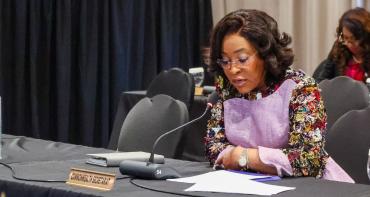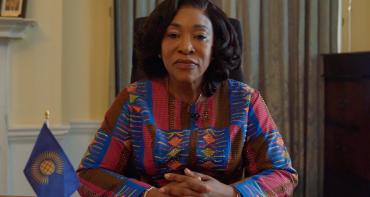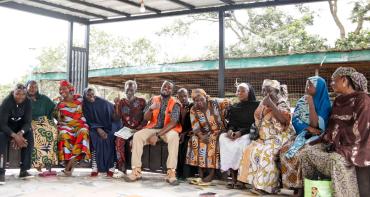Commonwealth Secretary-General Patricia Scotland has urged member countries to integrate sustainable land use management into their national climate action plans, with a focus on nature-based solutions, on the road to the UN Climate Change Conference COP26 this November.
To mark International Day of Forests (21 March), the Secretary-General emphasised the vital role of these natural assets for life on the planet, stating:
“From the vast boreal woods of Canada to the rich primary forests of Papua New Guinea, the Commonwealth covers nearly a quarter of all forest land in the world - an estimated 900 million hectares. They are essential sources of food, air and water, sustaining complex natural ecosystems, and supporting the livelihoods of millions of people, including around 90 per cent of those living in extreme poverty.
“Globally, forests play an indispensable role in mitigating the devastating impacts of climate change, absorbing a net 7.6 billion metric tonnes of carbon dioxide per year. However, they are under an immense global threat of degradation, primarily due to unsustainable land use by humans.
“Small and other vulnerable states will struggle the most with the consequences if concerted action is not taken.”
Call to Action on Living Lands
Commonwealth leaders are poised to take decisive action on these issues when they meet for the Commonwealth Heads of Government Meeting in June in Kigali, Rwanda, in the lead up to three key global summits - the United Nations (UN) Biodiversity Conference in October, the UN Climate Change Conference in November, and the UN Desertification Conference in December.
The Secretary-General said: “Commonwealth countries are working towards a pioneering ‘Commonwealth Call to Action on Living Lands’, to reinforce efforts to tackle the climate crisis, land degradation and biodiversity loss as three inter-linked challenges.
“I am encouraged by exemplary actions and pledges, to date, made by many Commonwealth countries to restore their forests and manage them sustainably – including through initiatives such as the Iwokrama International Centre for Rain Forest Conservation and Development and The Queen’s Commonwealth Canopy.
“We must continue working together to integrate wider sustainable land use management practices into national climate plans and mechanisms. Focus areas to be explored include climate resilient agriculture, soil and water conservation and management, sustainable green cover and biodiversity, and the active engagement of indigenous people.”
- Find out more about the Commonwealth Climate Change Programme.



